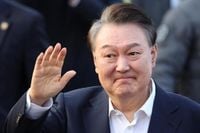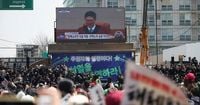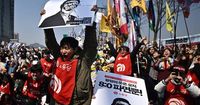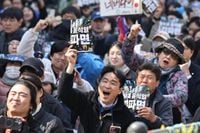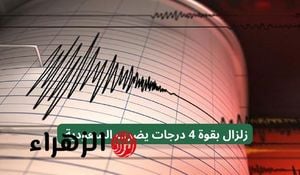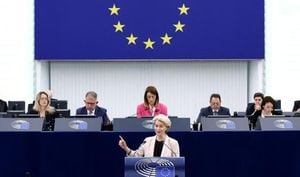In a historic ruling on April 4, 2025, the Constitutional Court of South Korea unanimously confirmed the impeachment of President Yoon Suk-yeol, definitively removing him from office for his controversial declaration of martial law in December. The court's decision opens the door for an early presidential election to be held within sixty days.
During a 23-minute statement delivered by the court's president, Moon Hyung-bae, the justices stated that Yoon's actions had "violated the fundamental principles of the rule of law and democratic governance." The court emphasized that Yoon did not merely declare martial law but also mobilized military and police forces to obstruct the National Assembly from exercising its authority, a move deemed unconstitutional.
The National Assembly had voted for Yoon's impeachment on December 14, 2024, following his declaration of martial law on December 3, which he justified as necessary to protect the nation from perceived threats. However, the court found that his justification did not meet the constitutional criteria for such an extreme measure.
Yoon's tenure as president was marked by increasing unpopularity, culminating in his attempt to impose martial law, which was met with widespread protests and resistance from lawmakers. The court's ruling now means that Yoon is the second South Korean president to be impeached in less than a decade, following Park Geun-hye's removal in 2017.
After the ruling, Yoon expressed his remorse in a brief statement, saying, "I am truly sorry and my heart is broken that I was not able to meet your expectations." He thanked his supporters for their encouragement despite his shortcomings.
The People Power Party, Yoon's political party, accepted the court's decision, with senior party official Kwon Young-se stating, "It is regrettable, but the People Power Party solemnly accepts and humbly respects the decision of the Constitutional Court. We present our sincere apologies to the people." This acknowledgment marks a significant shift in the party's position, which had previously defended Yoon's actions.
Opposition leader Lee Jae-myung welcomed the ruling, declaring that Yoon had "destroyed the Constitution and threatened the people and democracy with the weapons that the people had entrusted to him." Lee, who is now the frontrunner in the upcoming presidential election, emphasized the importance of upholding democratic principles in South Korea.
The political landscape in South Korea is now poised for a dramatic shift, with the early presidential election expected to take place by June 3, 2025. This election will be closely watched, as it will determine the direction of the country following a period of intense political turmoil.
In the wake of the court's decision, the South Korean stock market reacted positively, with the Seoul Stock Exchange gaining 0.35%. The won also strengthened against the dollar, reflecting market relief over the resolution of the political crisis.
Security was heightened around the court and the presidential residence, with 14,000 police officers deployed to maintain order amidst fears of potential unrest. Protests both for and against Yoon erupted in various parts of Seoul, highlighting the deep divisions within South Korean society.
The ruling has reignited discussions about the state of democracy in South Korea, with experts noting that while the institutions have shown resilience, the underlying political polarization remains a significant challenge. Leif Eric Easley, a professor at Ewha University, remarked that the ruling represented a victory for democratic institutions but did not resolve the intense political divisions that have emerged in recent years.
As South Korea prepares for a new election, the opposition Democratic Party is expected to leverage the ruling to strengthen its position. Lee Jae-myung, a veteran politician, is seen as a polarizing figure, having previously lost the presidency to Yoon by the narrowest margin in history. His leadership will be crucial as the party seeks to unify its base while addressing the concerns of voters disillusioned by the ongoing political strife.
Looking ahead, analysts predict that the upcoming election will be contentious, with both major parties facing internal challenges. The conservative camp, lacking a clear leader following Yoon's removal, may struggle to regain its footing amidst calls for reform and a renewed focus on issues such as economic stability and foreign relations.
In conclusion, the confirmation of Yoon Suk-yeol's impeachment marks a significant turning point in South Korean politics, setting the stage for a pivotal election that will shape the future of the nation's democracy. As the country grapples with the aftermath of this political upheaval, the eyes of the world will be on South Korea to see how it navigates this challenging period.
